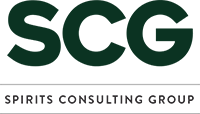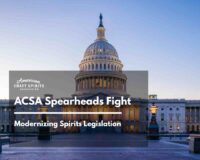Navigating the Storm: Tariffs and the Beverage Alcohol Industry
The beverage alcohol sector, already navigating through turbulent economic waters, has 30 days before it may be hit with additional challenges if tariffs imposed by the Trump administration go into effect after the 30-day pause. Industry leaders are still working on hoped-for exemptions. When the tariffs were enacted, the ripple effects were immediate and significant, particularly in the U.S.’s relationship with Canada, one of its largest export markets.
The beverage alcohol sector, already navigating through turbulent economic waters, has 30 days before it may be hit with additional challenges if tariffs imposed by the Trump administration go into effect after the 30-day pause. Industry leaders are still working on hoped-for exemptions. When the tariffs were enacted, the ripple effects were immediate and significant, particularly in the U.S.’s relationship with Canada, one of its largest export markets.
Canada’s Retaliatory Measures on Tariffs and the Beverage Alcohol Industry

As a direct response to these tariffs, Canada, which constitutes a major market for U.S. wines with retail sales surpassing $1.1 billion annually, has retaliated. Robert Koch, president and CEO of The Wine Institute, highlighted the severity of the situation, stating, “Wine is one of the U.S.’s most highly valued agricultural exports, so any loss of access to the Canadian market will damage the entire U.S. wine sector.” (Source: SND Daily 2.3.25)
Ontario, the largest Canadian province by population, and a significant consumer of U.S. spirits, wine, and beer with sales amounting to C$1 billion annually, has not only imposed tariffs but also started pulling American products off shelves. While these actions are on pause for 30 days, we expect that this trend would be echoed in other provinces like Quebec, British Columbia, and Nova Scotia, making U.S. beverage alcohol brands increasingly absent from retail spaces.
Tariffs and the Beverage Alcohol Industry Job Losses and Economic Impact
The implications extend beyond mere product availability. Before these tariffs, the industry group Toasts Not Tariffs predicted that a 20% tariff could lead to 74,000 American job losses across various sectors linked to the beverage alcohol industry. The economic toll is estimated at nearly $6.2 billion in lost sales, impacting not just producers but also distributors, hospitality workers, and retailers.
Strategies for Mitigation
Given the unique nature of some products, like Tequila and Canadian whiskey, which are bound by denomination of origin laws, changing suppliers isn’t a viable strategy for U.S. brands. Here’s what can be done:
Collaborative Pricing Strategies
Work with Production Partners: U.S. brands should collaborate closely with their production partners in Mexico or Canada to share the cost burden of tariffs. This collaboration can involve strategic pricing adjustments or seeking efficiencies in production to mitigate cost increases.
Advocacy and Public Awareness
Join Industry Efforts: Organizations like Toasts Not Tariffs, Wine & Spirits Wholesalers of America (WSWA), and the Distilled Spirits Council of the United States (DISCUS) are at the forefront of lobbying against these tariffs. U.S. brands should align with these groups to amplify their voice.
Lobbying and Public Engagement: It’s crucial for businesses to communicate the real-world impacts of these tariffs to elected officials and the public. Highlighting how these policies affect small and medium-sized enterprises can sway public opinion and potentially influence policy changes.
The Broader Implication: EU Tariffs and the Beverage Alcohol Industry
The threat doesn’t end with Canada. President Trump’s administration is also eyeing tariffs on the European Union, which could have profound effects on imported spirits and wine. A previous round of tariffs saw American Whiskey facing a 50% retaliatory tariff from the EU, a scenario the industry is keen to avoid repeating.
A Call for Dialogue
DISCUS, in partnership with the Tequila Chamber and Spirits Canada, issued a statement emphasizing the interconnectedness of the North American spirits market. They advocate for constructive dialogue to resolve these tariff issues, understanding that the harm extends beyond trade partners to domestic industries reliant on international goodwill and cooperation.
Tariffs and the Beverage Alcohol Industry – Looking Forward
The beverage alcohol industry is at a crossroads, needing to adapt swiftly to these economic and political shifts. The immediate strategy involves mitigation through collaboration, advocacy, and public engagement. Long-term, the industry hopes for a resolution through diplomatic channels to ensure that the spirits of innovation, quality, and international camaraderie in the beverage sector are not dampened by economic barriers.
What’s Next for U.S. Brands?
For U.S. brands, the path forward involves:
Continuous monitoring of trade policies and active participation in industry-led advocacy.
Where possible, rethinking supply chain or product portfolio.
Investing in brand loyalty through quality, storytelling, and consumer engagement to withstand market fluctuations.
The beverage alcohol industry has faced challenges before, and with resilience, strategic foresight, and unity, it can navigate this current storm of tariffs to continue thriving.
Need to strengthen your strategy through These Turbulent Times? Contact Us! For more Tariffs and the Beverage Alcohol Industry, the latest news and trends check out our social media.









